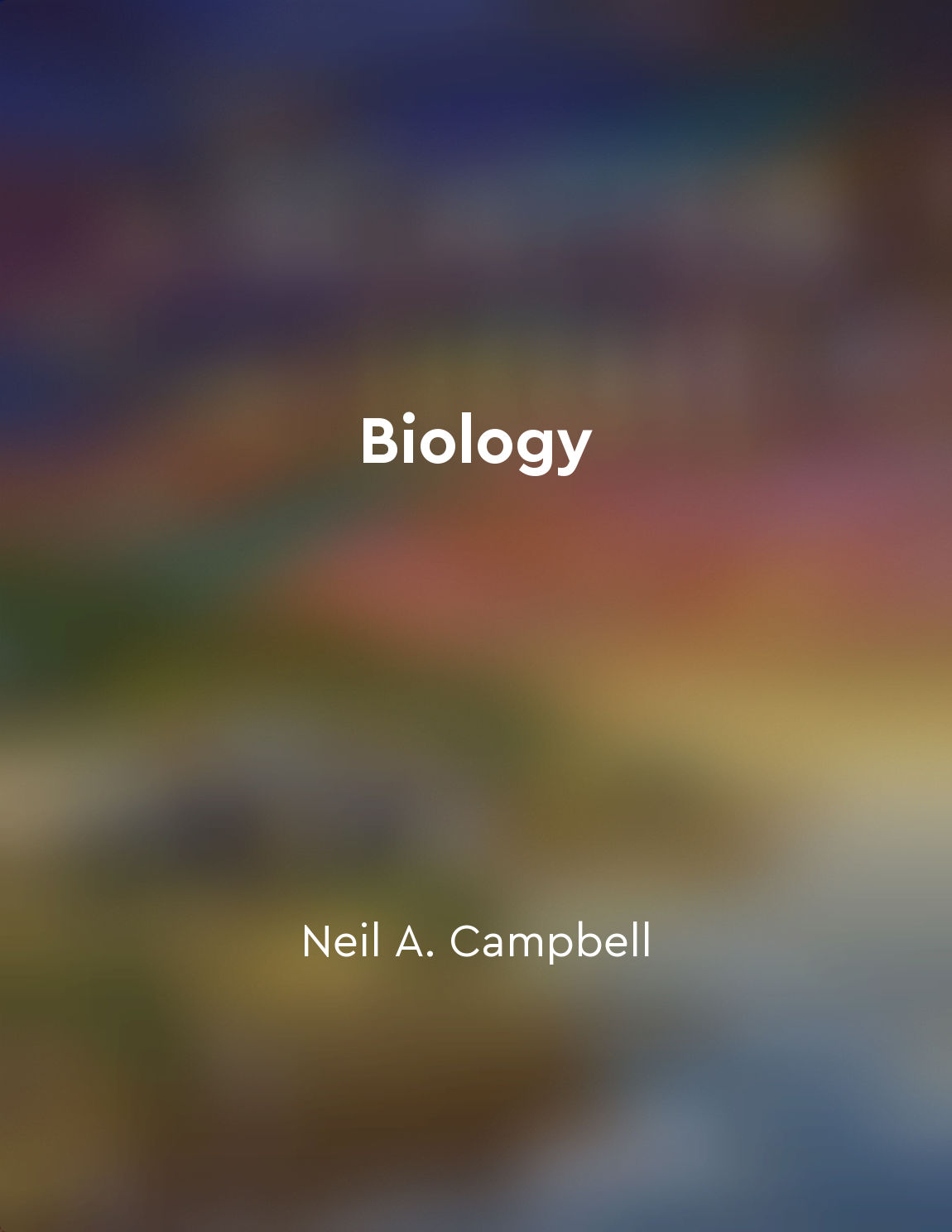Biotechnology manipulates living organisms for human benefit from "summary" of The Biology Book by DK
Biotechnology is a field that involves using living organisms to develop products and processes that benefit humans. It is a powerful tool that allows scientists to manipulate organisms at the genetic level to enhance their characteristics or create entirely new ones. By doing so, biotechnology can improve the quality of food, develop new medicines, and create sustainable solutions to environmental challenges. One of the key ways biotechnology is used is in agriculture. Scientists have developed genetically modified crops that are resistant to pests and diseases, allowing farmers to increase their yields and reduce the need for chemical pesticides. This not only benefits farmers by increasing their profits but also helps to ensure food security for a growing global population. In the field of medicine, biotechnology has revolutionized the way we treat diseases. By manipulating living organisms, scientists have been able to develop new drugs and therapies that target specific genetic defects or diseases. This has led to the development of personalized medicine, where treatments are tailored to an individual's genetic makeup for maximum effectiveness. Biotechnology is also being used to create sustainable solutions to environmental challenges. For example, scientists are developing biofuels that are made from renewable sources such as algae or bacteria. These biofuels are cleaner and more sustainable than traditional fossil fuels, helping to reduce greenhouse gas emissions and combat climate change.- Biotechnology holds great promise for improving our quality of life and addressing some of the most pressing challenges facing humanity. By manipulating living organisms for human benefit, scientists are able to unlock the full potential of the natural world and create a more sustainable and prosperous future for all.
Similar Posts

Food traditions connect generations
Food traditions are not just about what we eat; they are about who we are. They connect us to our past, our present, and our fu...
Transfection of mammalian cells
Transfection of mammalian cells involves the introduction of foreign nucleic acid molecules into these cells, allowing research...
Workforce dynamics shift
The way in which people work is undergoing a profound transformation. This shift, driven by a combination of technological adva...
Survival instincts kick in
When faced with a life-threatening situation, humans and animals alike rely on their innate survival instincts to guide their a...

Population ecology
Population ecology is the study of populations in relation to their environment, including environmental influences on populati...

Dairy is not necessary
Dairy is often thought of as an essential part of a balanced diet, but the truth is, it's not necessary. Many people believe th...
Local food systems reduce food miles and carbon footprint
Local food systems are gaining popularity as people become more aware of the environmental impacts of our current industrial fo...
Photosynthesis is the process by which plants convert sunlight into energy
Photosynthesis is a vital process that occurs in plants, allowing them to harness energy from sunlight. This energy is crucial ...
Scientific research is essential for advancing our understanding of biology
Scientific research plays a crucial role in expanding our knowledge of biology. Through systematic investigation and experiment...

